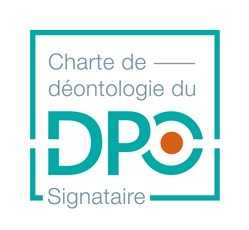The recent reform of insurance brokerage and banking and payment services brokerage, introduced by Law No. 2021-402 of April 8, 2021 and Decree No. 2022-34 of January 17, 2022, has established new rules regarding telemarketing in the insurance sector. Starting from April 1, 2022, these new provisions impact insurers and insurance intermediaries, such as brokers, general insurance agents, insurance agents, or intermediaries’ agents, who prospect potential clients and sell contracts over the phone.
Prior Explicit Consent
Article L. 112-2-2 of the French Insurance Code was introduced to protect consumers’ rights in telemarketing. According to the new regulation:
- At the very beginning of the conversation, the distributor must obtain the prior explicit consent of the subscriber or potential policyholder to continue the communication.
- If this consent is not obtained, the distributor must immediately end the call and refrain from contacting the person again.
This measure is part of a broader trend to strengthen consumer consent, as evidenced by the prohibition of conditioning the purchase of goods or services on consent to receive telemarketing calls. This practice, now banned, aimed to circumvent consent requirements.
Recording of Telephone Conversations
The decree specifies that:
- Distributors must inform the called parties that telephone conversations will be recorded.
- If an insurance contract is concluded, the recording of the telephone exchange must be retained for 2 years.
- Distributors must also inform their employees about the existence of this recording system, its purposes, and the legal retention period for recordings.
- Employees’ private calls are not subject to this requirement.
Other Obligations for Distributors
In addition to prior explicit consent and recording telephone calls, distributors are required to comply with several other obligations to protect consumer rights. They must:
- End the call immediately if the subscriber or potential policyholder shows a lack of interest or expresses a desire not to continue the commercial proposal.
- Review ongoing contracts: If the called party is already insured under a contract similar to the one being proposed, this contract may be terminated if the new contract is underwritten.
- Provide all documents and information related to the contract before its signature and ensure their receipt by the subscriber or potential policyholder.
- Respect a delay of at least 24 hours between the receipt of the documents by the subscriber or potential policyholder and any new telephone contact, after obtaining their express consent.
- Obtain an electronic or handwritten signature from the potential policyholder or subscriber to guarantee their commitment. Verbal agreement is not sufficient, and the distributor cannot sign a contract on behalf of the subscriber or potential policyholder.
Traceability and Data Retention
Distributors must ensure complete traceability of all telephone communications that occur before the conclusion of the contract, including the recording of telephone exchanges that led to the transaction. This retention must be maintained for a period of 2 years, to provide evidence in case of disputes or inspections. To ensure the integrity and security of recordings, the decree stipulates that appropriate measures must be implemented, limiting access to these recordings to agents of the Prudential Supervision and Resolution Authority (ACPR) and the Directorate General for Competition, Consumer Affairs, and Fraud Control (DGCCRF).
Exceptions
These new rules do not apply in the following cases:
- The distributor is bound to the subscriber or potential policyholder by an ongoing contract.
- The subscriber or potential policyholder has expressly requested the call or consented to be contacted in a clear, free, and unambiguous manner.
Penalties for Non-Compliance
In case of non-compliance with these obligations, distributors may face penalties of up to €1,500, in accordance with a 5th-class fine. These penalties are in addition to those already provided for under general telemarketing regulations, where fines can reach €75,000 for individuals and €375,000 for companies.
Broader Context: Shortcomings of the Current Telemarketing System
Legislators have identified several shortcomings in the current telemarketing regulatory framework, including:
- Confusion between “opt-in” and “opt-out” systems: Consumers are often poorly informed about their rights, leading to misunderstandings.
- Limited use of Bloctel: Only 9% of potential users are registered on this do-not-call list, limiting its effectiveness.
- Non-compliance by companies: Certain sectors, such as energy renovation, ignore the rules, and companies based abroad complicate the enforcement of penalties.
Recent Legislative Action by the Senate
The French Senate recently adopted new legislation aimed at reducing unsolicited telephone calls. This initiative marks a shift from an opt-out system to an opt-in system. From now on, telemarketers must obtain explicit consent from consumers before contacting them. This measure addresses growing consumer frustration with unsolicited calls and aligns with European standards, particularly the GDPR.
Conclusion
It is crucial for insurers and insurance intermediaries to comply with these new GDPR rules regarding telemarketing in insurance. By ensuring a transparent, respectful, and ethical approach, they can not only avoid penalties but also strengthen customer trust and preserve their reputation. At My Data Solution, we understand the importance of GDPR compliance and personal data protection. As experts in data protection and compliance, we offer tailored solutions to help businesses comply with current regulations, including the new rules on telemarketing in insurance. Do not hesitate to contact us to benefit from our expertise and ensure your company’s compliance.






 by
by